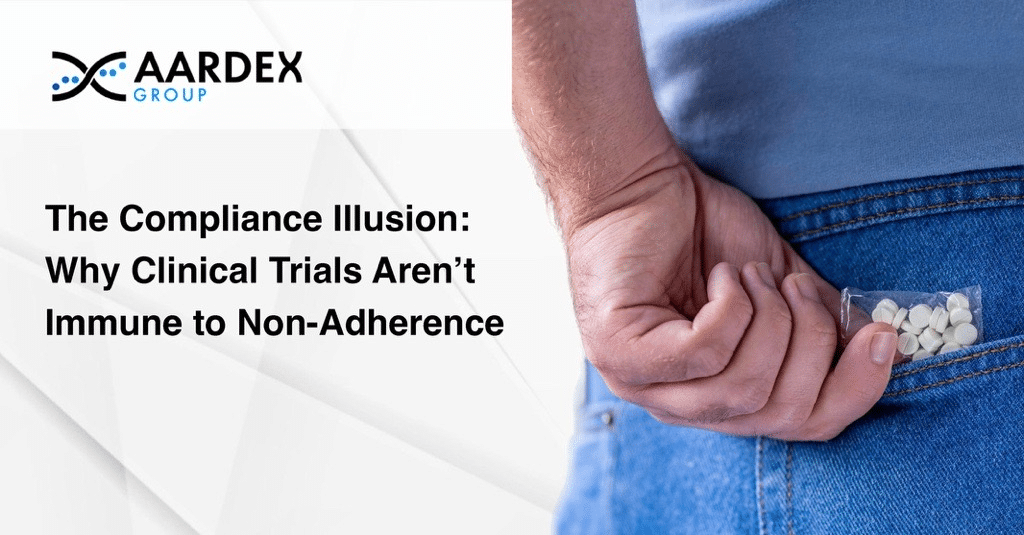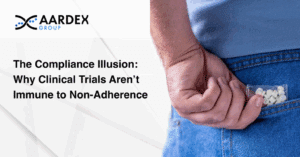As humans, the unconscious act of making assumptions is inherent in our DNA. These mental shortcuts are deep wired into our brains as a way of quickly making sense of the world around us.
And yet, throughout history, great thinkers have warned about the risks that come from relying on assumed information and jumping to automatic judgements. It’s a sentiment neatly summarised by a quote attributed to Irish playwright George Bernard Shaw: “Beware of false knowledge; it is more dangerous than ignorance.”
Perhaps it is surprising then that it has taken such a long time for the notion of medication adherence (or non-adherence) to attract the attention it deserves. For many years, it was assumed that the act of a physician issuing instructions to follow a course of treatment was sufficient to guarantee compliance on behalf of the patient. These assumptions around a patient’s behaviour were underpinned by a complex range of factors, such as the trust in the healthcare professional’s expertise and their motivation to act on guidance designed to improve their health.
However, as time goes on, we are learning more and more about how wrong those assumptions can be. Studies continue to show significant variation between levels of adherence required for drug regimens to achieve therapeutic efficacy and observed levels of adherence among patients in the real world. In the case of chronic medication, where persistent adherence is a prerequisite, the 50% compliance rate established by the World Health Organization (WHO) decades ago remains an accepted marker of a problem that potentially has a more direct impact on patient outcomes than the treatment itself.[1]
But while assumptions around good adherence in medical practice continue to be challenged, the same is not necessarily true of assumptions around adherence in clinical trial environments. Here, the fundamental problem of non-adherence persists, but there is a common misconception that this issue is managed within the closely controlled environment of a trial.
There are understandable reasons why this view persists. After all, a trial presents a different context for patients compared with their everyday lives. And with the underlying risk of adverse events far higher for pre-approval drugs compared with those that have already received marketing authorisation, it is understandable for there to be high expectations around adherence monitoring to support participant safety while also gauging therapy efficacy.
But contrary to the idea that clinical trials set the scene for pro-compliant behaviour, in reality there are many ways that trials actually serve to hinder medication adherence. A major factor within this dynamic is the placebo effect. Placebos are fundamental in assessing the efficacy of a drug against a zero baseline and, by definition, candidates and co-ordinators in a randomized double-blind trial will not be aware of whether they are taking the active drug or a placebo alternative. But because they must review and consent to the protocol pre-trial, candidates will be aware of the possibility that they are in the placebo group. For some, that knowledge could be enough to make them think that their actions might be pointless, negatively impacting their motivation to adhere to the trial protocol.
A little knowledge of the randomization process can also be bad for adherence if candidates – who are cognisant of the fact they are taking an unauthorised drug at an unproven dose – suspect they are either being under or overmedicated. On occasion, this kind of information has been known to have been shared among participants on social media, fuelling speculation and suspicion. This situation has the potential to set the conditions for non-compliance, as questions are raised in the minds of individuals regarding the efficacy (or inefficacy) of the medication under trial, eroding their commitment to the process and their resolve to stay adherent.
More simply, candidates might just fail to follow through on their promise to act as instructed, contrary to their own best intentions. This phenomenon – known as the Intention-Behaviour Gap – can be driven by a number of factors, from competing priorities and distractions to poor organisation and planning. Compliant behaviour can also slip over time if participants begin to tire of the effort involved. This is particularly the case for more demanding protocols that include elements such as regular clinic visits, blood tests and the completion of lengthy questionnaires. Things can be further complicated by complex dosing regimens designed to satisfy blinding requirements or combination drug products, where candidates might be burdened with self-injecting using a pre-filled syringe.
Negative thoughts and behaviours can even be triggered by the unfamiliar, bulky medication packaging prevalent in trials. For some, this acts as a reminder that the drug – or placebo – they are taking is as yet unproven, introducing doubts over the trial’s likely success and possibly even despondency among those who initially had high hopes for an effective treatment or cure.
In many cases, these barriers to adherence in clinical trials are not necessarily logical or rational. They are, however, reflective of the biases and inconsistencies that characterise human behaviour, as seen in the poor levels of adherence accepted within real-world medical practice. As such, it must also be acknowledged and accepted that such non-adherent behaviours present very real risks in the context of a clinical trial, where adherence is a critical factor in understanding the relationship between drug exposure and efficacy. Failing to address the issue has the potential to compromise the effectiveness and integrity of the trial itself, underlining the vital importance of employing robust, advanced methods of adherence monitoring in trials, which currently over-rely on flawed legacy methods, such as pill count and patient self-report.
Overall, it is encouraging that the problem of adherence in medical practice continues to be better understood and addressed. More must be done to translate this thinking into clinical trials, however, where patient behaviours play a critical role in progressing promising new treatments. It might seem counterintuitive or paradoxical, but the belief that trials are a safe haven for good compliance is a dangerous assumption to make.
Establishing hard evidence for your trial…
AARDEX has a best practice methodology, independent of any device package or software platform. Utilising our expertise and experience in medication adherence and patient compliance we acquire, monitor, analyse, guide and interpret data to deliver absolute clarity and bring confidence to sponsors, trialists, and ultimately, patients.
AARDEX is the only mature, robust and proven adherence solution on the market today, one that maximises the reward, mitigates the risk and delivers resolution for your clinical trial. All delivered with the clarity, integrity and certainty you need to proceed with complete confidence in the exposure-response.
[1] https://www.uspharmacist.com/article/medication-adherence-the-elephant-in-the-room



